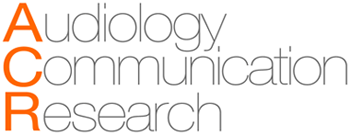We are now presenting the third issue from 2015 of the Audiology - Communication Research journal.
Continuing with the purpose of improving this journal, which biggest challenge is its indexing to databases such as MEDLINE and ISI, our current aim is to improve the English presentation of the journal.
The articles translation we have been receiving are disparate, as a consequence the journal language is not uniform, seriously compromising the journal quality, and, thus, its assessment.
Ideally, we should be having all the articles translated by the same person or company. In this sense, we have been in contact with several translators, requesting estimates for the translation of the 60 articles published annually, aiming to lower the expenses for the authors. If we are able to obtain a good price, the authors will pay the translation to the Brazilian Academy of Audiology (Academia Brasileira de Audiologia) instead of paying directly to the translator.
Until that does not happen, and we are still working with different translators, we want to emphasize that it is indispensable that the authors revise the translation performed on their articles. Unfortunately, we have received articles with primary translation errors, which slows the editorial process and compromises the quality of the publication.
The September issue is composed of 14 Original articles, and one Case report.
The first four articles are from the field of orofacial myofunctional disorders, and regards breastfeeding and speech-language pathology; oral diadochokinesis and masticatory function in elderly; oral and pharyngeal transit time in stroke, and the electric activity of the suprahyoid muscles during different lingual exercises.
Following, we present an article from the field of voice, which concerns the analysis of prosodic variation in different styles of TV news reports.
Five of the articles are from the audiology field and approache the following themes: cross-cultural adaptation of Speech, Spatial and Qualities of Hearing Scale (SSQ) to Brazilian Portuguese; behavioral and electrophysiological assessment of auditory processing; the P3 cortical potential to different stimulus; test-retest variability in the pure tone audiometry, and a reflection on newborn hearing screening.
From public health field, an article on speech, language and hearing sciences and the family health strategy is presented.
Finally, from the language field, in all its forms - oral, written and sound production - four articles are presented on the following topics: postpartum depression and pragmatic skills, population profile of the Evaluation and Prevention Group of Language Disorders (EPGLD), and adaptation of the Montreal Communication Evaluation Battery to European Portuguese. Finally, we have a case report regarding the fluency in primary progressive aphasia-logopenic variant
We would like to finalize with a appreciation message to our reviewers for their work, once delivering their reports within the established deadlines is essential for the punctual publication of this journal.
We further reinforce the request that everyone - authors and reviewers - meet the deadlines properly, to maintain our indexation to SciELO and, thus, increasing our chances of indexation to MEDLINE.
Eliane Schochat e Kátia de Almeida
Editors of Audiology - Communication Research
Publication Dates
-
Publication in this collection
Jul-Sep 2015

